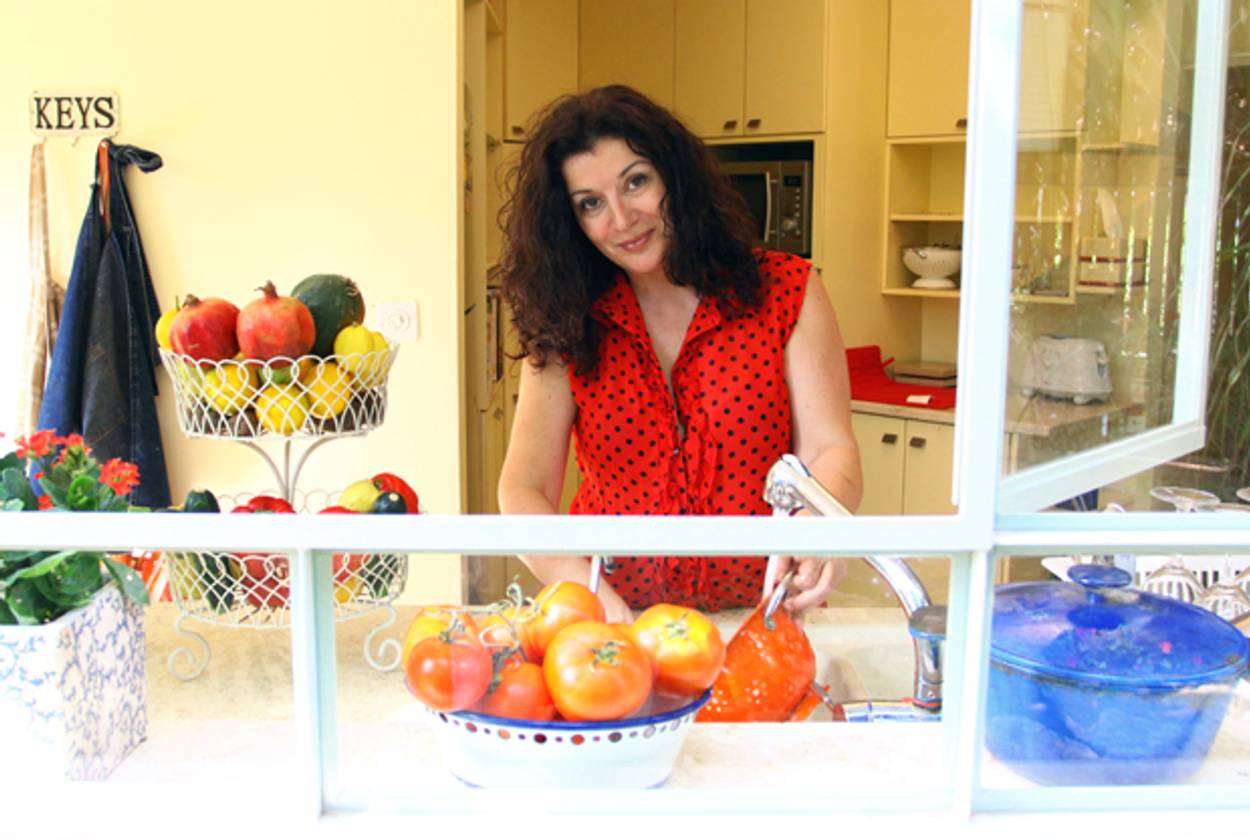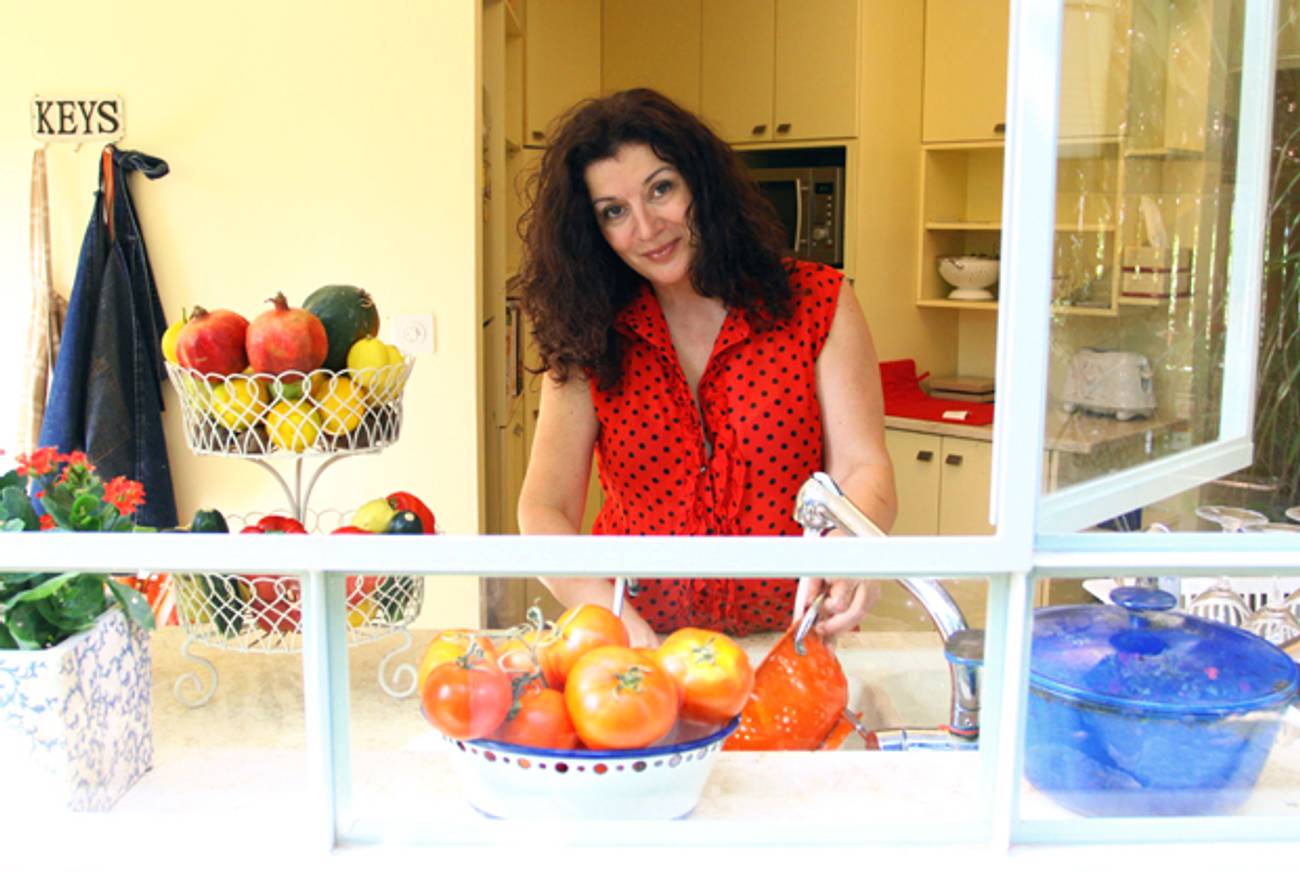Talking New Israeli Cuisine in New York City
Janna Gur and Gil Hovav head to New York for a series of food events




“Israel today is rapidly becoming a foodie’s paradise,” explains New York’s Museum of Jewish Heritage, host of the delicious-sounding October 6 event “Frothed Milk and Truffled Honey: The New Israeli Cuisine.” The event features food writers Janna Gur, Gil Hovav, Naama Shefi, and Bonnie Stern, in a panel discussion moderated by cookbook author Jayne Cohen, followed by a taste of contemporary Israeli dishes by star chef Einat Admony.
Israel’s emerging food scene has been garnering attention and recognition for some time now, and the country’s cuisine is being embraced by the wider culinary community—just look at restaurants like Philadelphia’s Zahav and New York City’s Taïm and Balaboosta, as well as the huge success of London-based Israeli chef Yotam Ottolenghi’s cookbook Jerusalem.
“Israeli cuisine is considered one of the most exciting emerging cuisines at the moment,” confirmed Gur, founder and editor of Israel’s leading food magazine, Al Hashulchan Gastronomic Monthly, who spoke with Tablet’s podcast, Vox Tablet, in 2008. She has a series of events and receptions on her schedule while she’s in New York; in addition to speaking at the Israeli cuisine event, she’ll be leading a cooking class and lunch for the Fifth Avenue Synagogue’s Women’s Club on October 9, where she plans to dazzle the ladies with an array of multi-colored vegan mezes.
“I felt this interest emerging a few years back, when I wrote The Book of New Israeli Food: A Culinary Journey,” Gur said. “Back in 2008 you could feel the start of an emerging interest in Israeli cuisine. Nowadays it is really hot and I hope it will get even hotter.” She pointed out that the last cuisine to be embraced with such fervor was the new Nordic, though that was difficult to export.
“Israeli food, on the other hand, is much easier to make outside of Israel,” she explained. “Obviously it never tastes the same outside of Israel, but even if the vegetables aren’t the same, the basic products aren’t difficult to find, especially in New York, if you know what you’re looking for.”
Gur doesn’t hesitate when I asked her why Israeli cuisine is garnering so much attention these days. “I think Israeli cuisine perfectly captures the zeitgeist—it is light, alive and fresh, bursting with flavor, and very casual.” she explained. The emphasis on vegetables in Israeli dishes is appealing to vegetarians and vegans, as well as those interested in healthy eating. “Dishes like Beetroot salad with cinnamon and coriander or baked cauliflower with tahini, which are simple and basic, bustle with flavor and are very exciting to the American palate,” she added.
Gil Hovav, one of Israel’s leading culinary journalists and television personalities, who will be a panelist alongside Gur at the October 6 event, agrees that there’s a buzz around Israeli cuisine at the moment. “I think that the American interest in Israeli cooking started because of the neighborhood which we live in—the Middle East,” he explained. “Usually when people ask me if there is such a thing as Israeli cuisine, my response is that there isn’t, but if I’m pressed I say that it’s a spicier and ruder kind of Mediterranean cuisine and that it’s absolutely charming.”
But unlike Gur, Hovav isn’t convinced that Israeli cuisine is so healthy or flexitarian. “For some reason Americans draw a connection between kosher food and healthy food, when the opposite is true,” he said. “Israeli food is based on shawarma, falafel, lamb, chicken and goose liver, schnitzel, a lot of greasy North African foods, and deep-fried fish no less than it is based on vegetables.”
Related: Israeli Chefs Go Back to Their Roots To Find Inspiration in the Kitchen
Israeli Chefs Bring a New Spin on Middle Eastern Food to America
The Taste of Jerusalem
Land of Plenty
Dana Kessler has written for Maariv, Haaretz, Yediot Aharonot, and other Israeli publications. She is based in Tel Aviv.